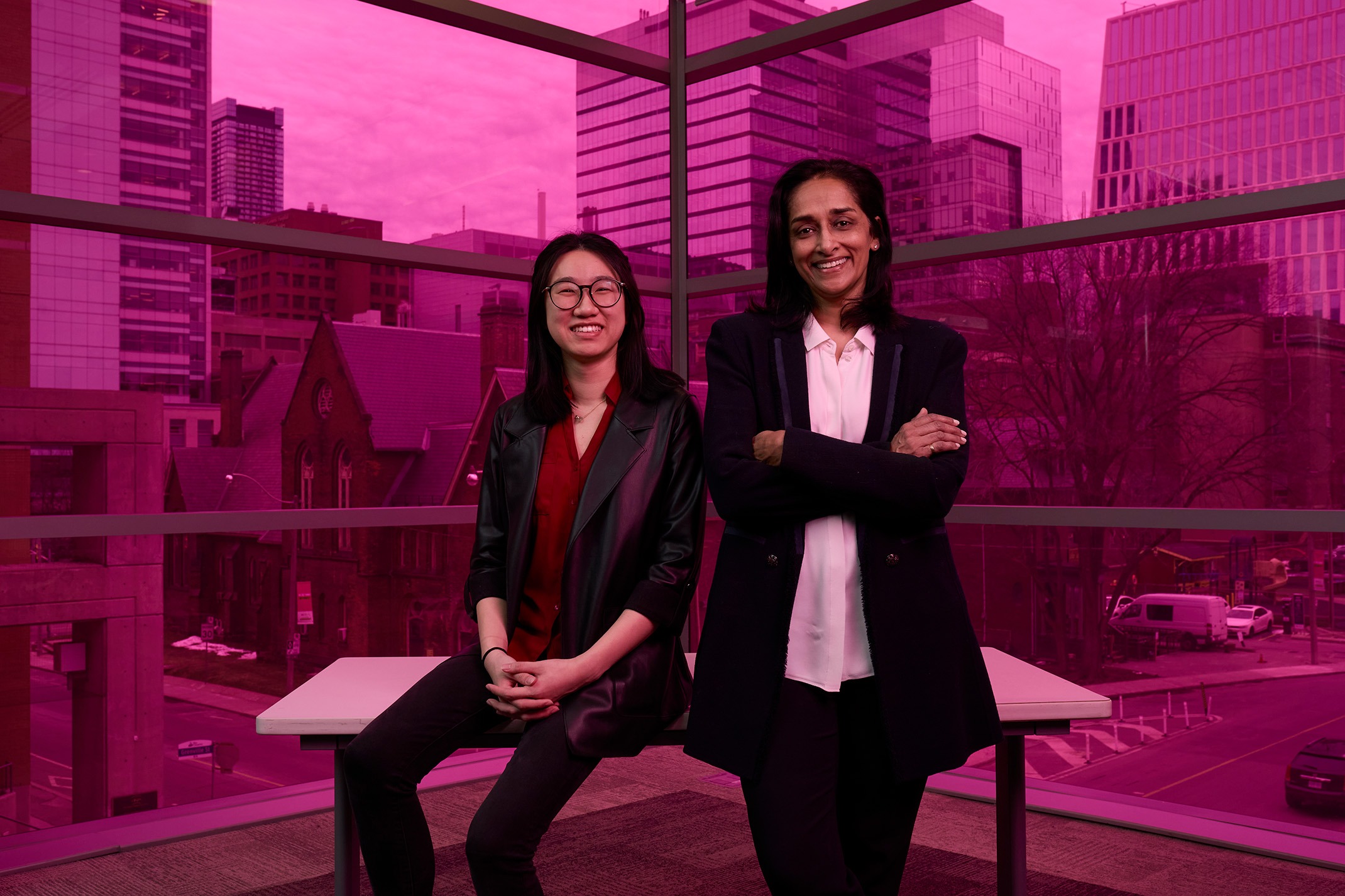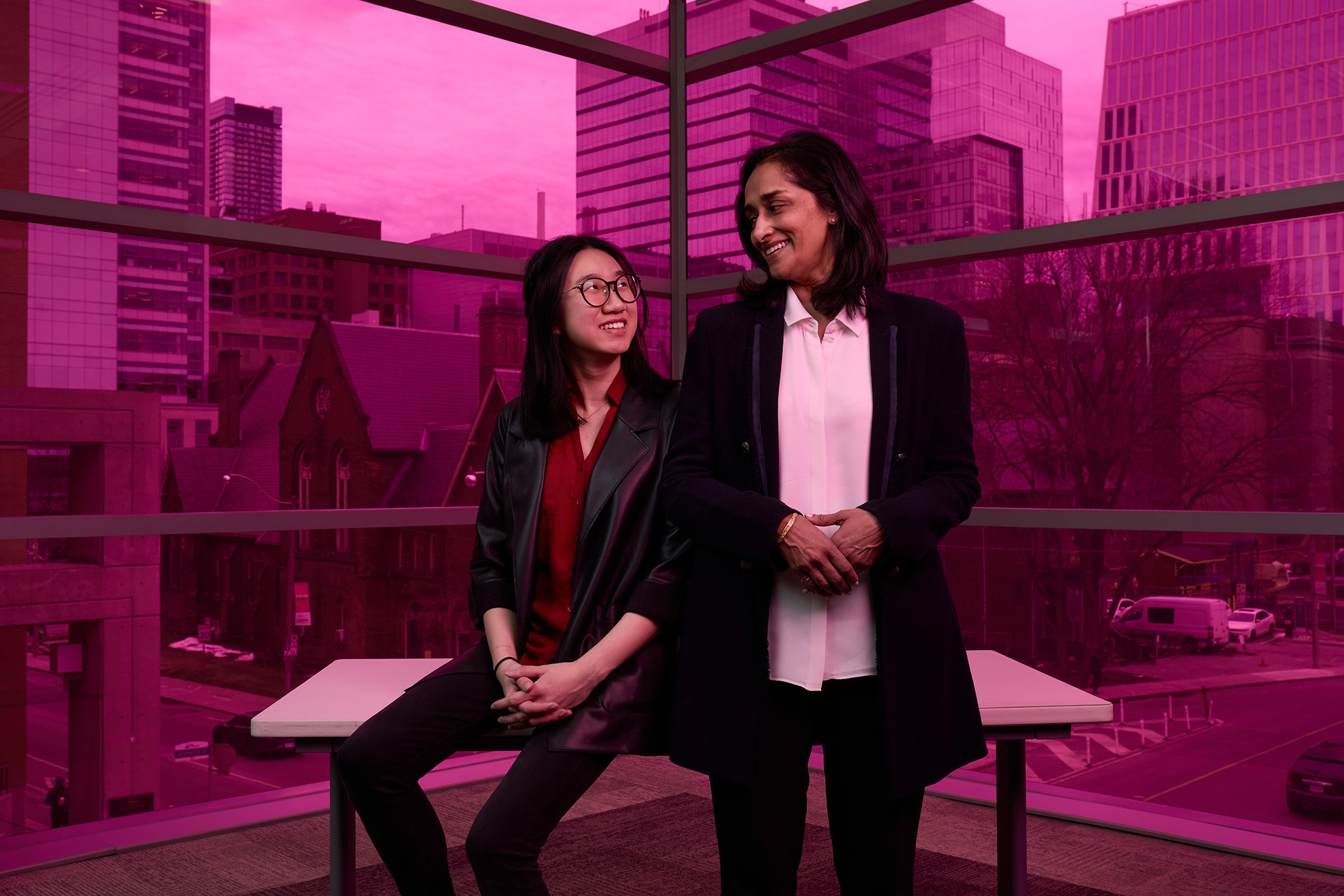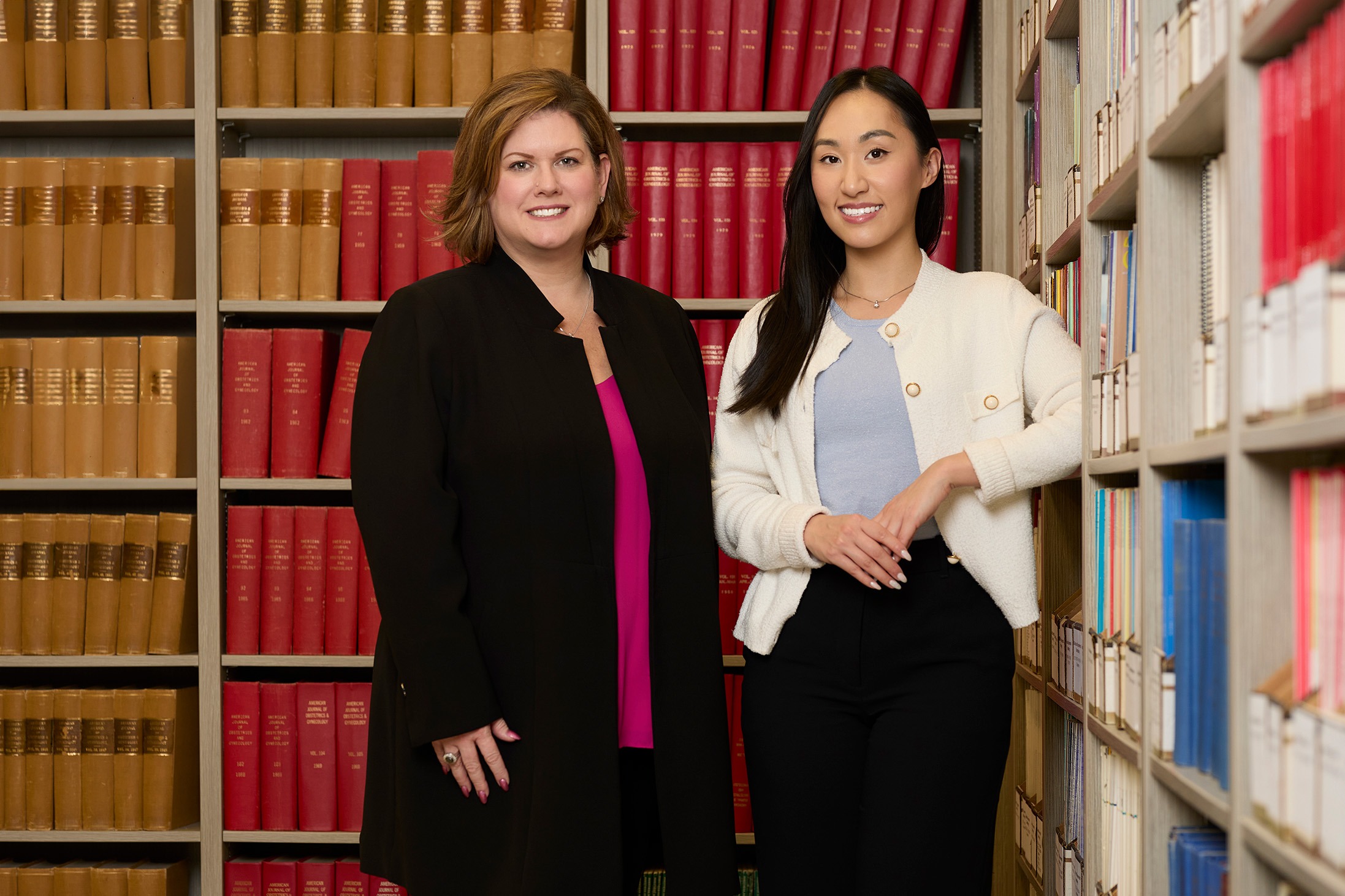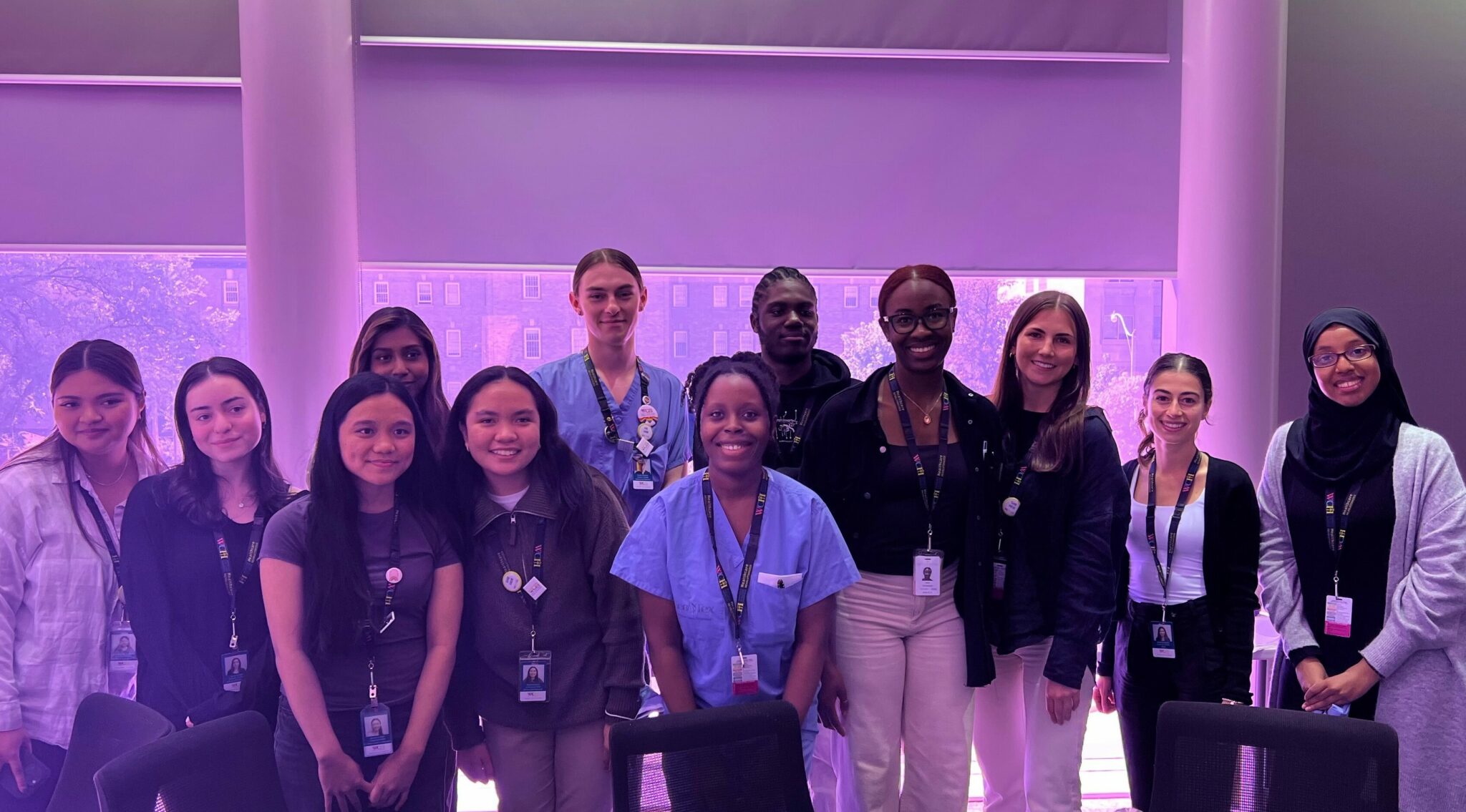Clinical externs at WCH
Fostering academic excellence through new Learning Institute

Left to right: Isabelle Choon Kon-Yune, former ESSP summer student and Dr. Rulan Parekh, Vice President of Academics
Fostering academic excellence through new Learning Institute

Left to right: Isabelle Choon Kon-Yune, former ESSP summer student and Dr. Rulan Parekh, Vice President of Academics
Seventeen years. On average, that’s how long it takes for a person to complete their elementary, middle, secondary and post-secondary schooling combined. It’s the number of years it’s taken Apple to make 42 different models of the iPhone. It’s the number of years it’s taken 176 people to travel to space. And according to the National Academy of Medicine, it’s also the number of years it takes for health research to turn into clinical practice.
While evidence-based practice serves as the benchmark for patient care, there is a lag between when a researcher makes a discovery to when it’s integrated into practice. This can be the case for a multitude of reasons, like the challenges of adopting practices, resistance from care providers and institutions, or the conflicts with implementing new methods into existing practices.
One way to bridge the gap between research and practice is through knowledge translation, which entails disseminating findings more efficiently and effectively. Connecting academia with the community enables research findings to be translated into real-world applications and policies that can positively impact lives. That’s why Women’s College Hospital (WCH) is investing resources into making its research and education accessible by engaging directly with community members, policymakers, students and health system leaders across the country.
This includes the formation of the new Learning Institute, a knowledge hub for healthcare learners and trainees. Leveraging existing expertise, the Learning Institute aims to modernize and expand WCH’s educational programming and infrastructure, strengthening both learning and teaching capacity.
“We’re focused on building and expanding programs,” says Amy Gleiser, director of WCH’s Learning Institute. “Our mandate is to fuel the learning health system.”
A learning health system entails using feedback and data to improve patient care in real-time – not 5, 10 or 17 years from now.
“We’re nimble, solution-oriented, and positioned to lead in new areas,” says Dr. Rulan Parekh, vice president of Academics at WCH. During the pandemic, it was evident that clinical treatments and new ways of delivering care could happen quite rapidly. By taking on a learning health systems approach, we can provide innovative and new approaches to care.”
Building a Learning Health System (LHS) can’t be done alone, which is why this plan includes the launch of the LHS seminar series. Speakers from renowned institutions are invited each month to share their experiences with an LHS. They delve into the necessary resources, the added value and the potential influence on their work methodologies.
This series provides a unique opportunity for all WCH teams to gain insight into the practices of other sites, both within Canada and globally, and to envision what an LHS could look like at WCH.
“We can develop a genuine partnership with our patients, families and communities, generating new knowledge and best practices,” explains Dr. Parekh. “By fostering an LHS, Women’s College Hospital will be the first in Canada to do so, and thus, become a model for the healthcare system.”
The Learning Institute is also focused on fostering and maintaining connections with equity-deserving communities to shape fair and just health systems.
Isabelle Choon-Kon-Yune was a summer student in the Emily Stowe Scholars Program (ESSP), designed to remove barriers for individuals from underrepresented communities in the health sciences. During her time as a student, she worked under the supervision of Dr. Ibukun Abejirinde on a research project aimed at understanding how migrants and refugees in Canada experience compassion through virtual care.

Left to right: Isabelle Choon Kon-Yune, former ESSP summer student and Dr. Rulan Parekh, Vice President of Academics
Today, she’s progressed beyond her role as a summer student and now works at WCH full-time, continuing her important work in refugee and migrant healthcare.
“As a child, I personally experienced the influence that access to culturally competent healthcare providers had on the health of both my parents and extended family,” she explains. “I aspire to grow as a public health professional to address health inequities and improve the well-being of those from marginalized communities. WCH has provided a supportive and enabling environment to help me achieve both my learning and professional development goals.”
To foster partnerships and increased diversity in healthcare, WCH partnered with the Gairdner Foundation to host the second annual Women of Gairdner event. More than 70 high school students from diverse backgrounds and communities listened to talks from esteemed female Gairdner laureates – world-recognized scientists whose work has significantly advanced our understanding of human health and disease.
“Not only does an event like this inspire the next generation of health practitioners, but it also provides us with an opportunity to connect with our local schools and community members,” explains Sharon Tan, manager of Learner and Student Services at WCH. “We had parents and teachers in attendance which strengthens support for young learners and helps build community beyond WCH.”
Events like this exemplify what the Learning Institute is about – unparalleled mentorship, teaching and leadership. Within WCH, both learners and teachers will benefit from additional programs like a new preceptor network and educational scholarship programs.

Left to right: Amy Gleiser, director of the Learning Institute and Sharon Tan, manager of Learner & Student Services
As one of the few hospital-based research institutes in the world focused on women's health and health equity, WCH is uniquely positioned to change practice, policy and lives through high-impact research. While the Learning Institute takes shape, it will focus on promoting community engagement efforts to offer opportunities both within the hospital walls and beyond.
“Whether you’re a teacher or a learner, it’s an exciting time to be at Women’s. You’re learning from some of the best experts in the world,” says Amy. “We’re building momentum, and we’re only getting started.”

Clinical externs at WCH

Clinical externs at WCH
Over the past year, Women's College Hospital (WCH) held its first clinical extern program. Made possible through additional funding from Ontario's Ministry of Health, the clinical extern program is made up of clinical learners who temporarily join the hospital as staff to receive hands-on skill development and to provide additional support to programs across the organization.